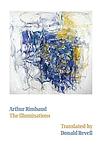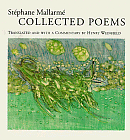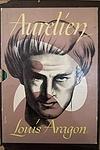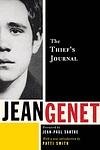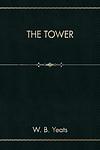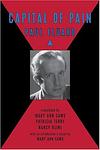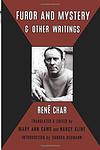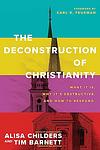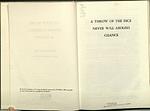The Greatest French, Irish "Modernist" Books of All Time
Click to learn how this list is calculated.
This list represents a comprehensive and trusted collection of the greatest books. Developed through a specialized algorithm, it brings together 305 'best of' book lists to form a definitive guide to the world's most acclaimed books. For those interested in how these books are chosen, additional details can be found on the rankings page.
Genres
Modernist literature is a category of books that emerged in the early 20th century, characterized by a break from traditional literary forms and a focus on individual experience and perception. Modernist writers experimented with language, form, and structure, often using stream-of-consciousness narration and fragmented storytelling to convey the complexity and ambiguity of modern life. Themes of alienation, disillusionment, and the search for meaning are common in modernist literature, which reflects the cultural and social upheavals of the time. Overall, modernist literature is a challenging and thought-provoking genre that continues to influence contemporary literature and culture.
Countries
Date Range
Reading Statistics
Click the button below to see how many of these books you've read!
Download
If you're interested in downloading this list as a CSV file for use in a spreadsheet application, you can easily do so by clicking the button below. Please note that to ensure a manageable file size and faster download, the CSV will include details for only the first 500 books.
Download-
26. Watt by Samuel Beckett
The novel is a darkly comedic and absurdist exploration of the human condition. It follows the eponymous character, Watt, as he serves as a domestic servant in a bizarre, isolated household. Throughout the narrative, Watt struggles to make sense of his surroundings, the odd behavior of his master, and his own existence. The book is filled with philosophical musings, wordplay, and surreal humor, offering a unique and challenging reading experience.
The 1431st Greatest Book of All Time -
27. Illuminations by Arthur Rimbaud
"Illuminations" is a collection of prose poems that delve into the author's vivid dreamlike visions and his exploration of his inner psyche. These poems are filled with symbolic imagery and metaphors that challenge traditional poetic norms. The author uses his work to express his disillusionment with the conventional world, his longing for spiritual enlightenment, and his quest for personal freedom. The collection is a testament to the author's innovative style and his significant influence on modernist literature.
The 1474th Greatest Book of All Time -
28. Paris Spleen by Charles Baudelaire
The book is a seminal work in the history of prose poetry, capturing the modern urban experience through a series of short, lyrical pieces. It delves into the psychological landscape of the city, exploring themes of melancholy, ennui, and the search for beauty amidst the squalor of Parisian life in the mid-19th century. The author's sharp observations and vivid imagery reflect his complex relationship with the city, oscillating between a deep love for its vibrant culture and a profound sense of alienation. This collection of prose poems is considered a touchstone for modernist literature, influencing generations of writers and poets with its innovative style and introspective depth.
The 1793rd Greatest Book of All Time -
29. Collected Poems by Stéphane Mallarmé
"Collected Poems" is a compilation of poetic works by a renowned French poet. The book offers readers a deep exploration into the intricate world of symbolism and the power of language. The author's artistic use of words to create vivid imagery and evoke profound emotions is evident throughout the collection. His poems delve into themes of reality, dreams, and the interplay between the two, offering a unique perspective on the human experience.
The 1840th Greatest Book of All Time -
30. Wry-Blue Loves: Les Amours Jaunes by Tristan Corbière
"Wry-Blue Loves: Les Amours Jaunes" is a collection of poems that explore themes of love, death, and the sea. Written in a unique style that blends irony, sarcasm, and a sense of melancholy, the author uses vivid and sometimes shocking imagery to challenge conventional romantic ideals and express his own disillusionment with love and life. The sea serves as a recurring motif, symbolizing both the author's Breton heritage and the unpredictable, often cruel nature of existence.
The 1906th Greatest Book of All Time -
31. Krapp's Last Tape by Samuel Beckett
"Krapp's Last Tape" is a one-act play about an aging man who annually records a review of the past year of his life. On his 69th birthday, he listens to a tape from 30 years earlier, where he reflects on his life at 39, his lost love, and his isolation. The play explores themes of memory, regret, and the passing of time, with the protagonist's relationship with his younger self revealing a portrait of a man in decline.
The 1914th Greatest Book of All Time -
32. Eva Trout by Elizabeth Bowen
"Eva Trout" is a novel about a young, wealthy woman who struggles to find her place in society and understand her own identity. She leaves England to live in France, where she adopts a deaf-mute child in an attempt to avoid loneliness. The book explores themes of isolation, communication, and the effects of wealth on personal relationships. The protagonist's eccentric and often impulsive behavior leads to a tragic climax, shedding light on the consequences of her actions and decisions.
The 2018th Greatest Book of All Time -
33. Aurélien by Louis Aragon
"Aurélien" is a novel set in post-World War I Paris, following the life of the protagonist, a war veteran, who falls in love with a woman he sees in a café. However, the woman is already engaged to a friend of his, leading to a tumultuous love triangle. The book explores themes of love, war, and the struggle of the human condition, presenting a vivid picture of the social and political landscape of Paris during the 1920s.
The 2032nd Greatest Book of All Time -
34. Impressions of Africa by Raymond Roussel
In this surrealistic novel, a group of Europeans are stranded in Africa after their ship is hijacked by a local monarch. While held captive, each of the characters narrates a fantastical tale or performance, showcasing their unique talents and skills. The narrative is filled with bizarre inventions, intricate wordplay, and a dizzying array of subplots, all of which are eventually woven together in a complex and cryptic manner. The novel is a testament to the author's imagination and his ability to create a world that is both strange and captivating.
The 2443rd Greatest Book of All Time -
35. Arcanum 17 by André Breton
"Arcanum 17" is a surrealist exploration of love, loss, and resurrection set amidst the backdrop of World War II. Drawing inspiration from the legend of Melusina, the author uses the symbolism of this mythic figure to discuss the role of women in society and the destructive nature of war. The narrative also delves into themes of renewal, rebirth, and the power of the feminine, all while using the surrealist style to blend reality and dream in a poetic and philosophical discourse.
The 2443rd Greatest Book of All Time -
36. Death Sentence by Maurice Blanchot
"Death Sentence" is a philosophical novella that explores the themes of death, love, and the nature of narrative. The story is divided into two parts, each focusing on a different protagonist who is dealing with the impending death of a loved one. Through their experiences and internal monologues, the novel delves into the complexities of human emotions and the existential dread associated with mortality. The narrative is further complicated by the author's experimental writing style, which challenges traditional storytelling conventions and encourages readers to question their understanding of reality.
The 2443rd Greatest Book of All Time -
37. The Vice-Consul by Marguerite Duras
This novel follows the story of three lonely, dispossessed people in Calcutta, India: a troubled former French diplomat, a young French woman haunted by her past, and a poverty-stricken Indian woman. As their lives intersect, they grapple with desire, despair, and the struggle for redemption. The narrative is a complex exploration of colonialism, privilege, and the human condition, told through the lens of these three characters' tragic and intertwined lives.
The 2443rd Greatest Book of All Time -
38. The Thief's Journal by Jean Genet
The book is a fictionalized account of the author's experiences in the criminal underworld of early 20th-century Europe. It is a narrative that delves into the life of a man who embraces his identity as a thief and a homosexual, exploring the intersections of crime, sexuality, and social defiance. The protagonist navigates through various relationships with fellow outcasts and criminals, while also confronting the moral codes of society. The work is known for its poetic and introspective prose, as well as its exploration of themes such as betrayal, freedom, and the search for beauty within the margins of society.
The 2876th Greatest Book of All Time -
39. Calligrammes by Guillaume Apollinaire
"Calligrammes" is a collection of free verse poetry and typographical experiments by a French poet. The poems are noted for their use of complex visual layouts and playful language, which often incorporate elements of surrealism and cubism. The collection is also notable for its exploration of various themes, including love, war, and the passage of time. The title of the collection refers to the poet's use of words and phrases to create a visual image, or calligram, on the page.
The 3085th Greatest Book of All Time -
40. The Tower by William Butler Yeats
"The Tower" is a collection of poems that delves into the themes of aging, identity, and the creative process, reflecting the poet's introspection and philosophical musings as he grapples with the passage of time. The work is characterized by rich symbolism and imagery, drawing upon the poet's personal experiences, Irish mythology, and the political landscape of the time. Central to the collection is the metaphor of the tower, representing both a place of isolation and a vantage point from which to view and contemplate the world. The poems within explore the tension between the material and spiritual, the temporal and the eternal, as the poet seeks to reconcile the transitory nature of life with the pursuit of transcendent artistic expression.
The 3093rd Greatest Book of All Time -
41. Langrishe, Go Down by Aidan Higgins
"Langrishe, Go Down" by Aidan Higgins is a poignant and introspective novel that delves into the lives of the Langrishe sisters, Imogen and Helen, as they navigate their way through the complexities of love, loss, and longing in rural Ireland. Set in the 1930s, this beautifully written narrative explores the sisters' turbulent relationships with the men in their lives and their struggle to find their own identities amidst societal expectations. With vivid descriptions and emotional depth, the novel captures the essence of a bygone era and offers a profound exploration of the human experience.
The 3182nd Greatest Book of All Time -
42. Capital of Pain by Paul Éluard
"Capital of Pain" is a collection of surrealist poetry that explores themes of love, loss, and the human condition. The author, a key figure in the Surrealist movement, uses vivid and often disturbing imagery to express deep emotional turmoil and existential angst. The poems range from the intensely personal to the broadly philosophical, offering a glimpse into the author's inner world and his reflections on life, death, and the nature of reality.
The 3624th Greatest Book of All Time -
43. Tropisms by Nathalie Sarraute
"Tropisms" is a collection of 24 short sketches that delve into the hidden undercurrents of human interactions and the subtle, often unnoticed movements of thought and feeling. The book, often considered a precursor to the nouveau roman literary movement, explores the mundane aspects of everyday life and the psychological complexities beneath them, using a unique, impressionistic style. The term 'tropisms' refers to the instinctive reactions of humans, similar to the biological responses of plants to stimuli.
The 3643rd Greatest Book of All Time -
44. Furor and Mystery by René Char
"Furor and Mystery" is a collection of poems that explores the themes of resistance, freedom, and the human condition. The author, a member of the French Resistance during World War II, uses his experiences to craft evocative and powerful verse. The poems are filled with metaphors and imagery, often drawing on nature and the Provencal landscape to illustrate the struggle against oppression and the search for truth.
The 3657th Greatest Book of All Time -
45. Amers by Saint-John Perse
"Amers" is a poetic exploration of the sea as a metaphor for life and human existence. The book delves into the relationship between man and the sea, examining its vastness, mystery, and relentless force. The author uses his personal experiences and observations to create a vivid and lyrical portrayal of the sea and its influence on human life, exploring themes of exploration, discovery, and the human spirit.
The 3666th Greatest Book of All Time -
46. Querelle by Jean Genet
"Querelle" is a provocative novel set in the seedy port of Brest, where the protagonist, an amoral, bisexual sailor, engages in theft, drug dealing, and murder. The story explores themes of identity, sexuality, and power, presenting a dark and complex character study that challenges societal norms and expectations. The narrative is imbued with homoerotic undertones, reflecting the author's own experiences and perspectives as a gay man.
The 3791st Greatest Book of All Time -
47. The Voyeur by Alain Robbe-Grillet
"The Voyeur" is a psychological thriller that revolves around the protagonist, a watch salesman, who visits an island town to sell watches but becomes the prime suspect in a young girl's murder. The narrative delves into the mind of the salesman, constantly blurring the lines between reality and his fantasies. The book is known for its experimental narrative style, with the author often repeating scenes with minor variations and leaving the reader to question the truth.
The 4137th Greatest Book of All Time -
48. Childhood by Nathalie Sarraute
"Childhood" is a memoir that delves into the fragmented memories of the author's early years, exploring the complexities of growing up and the formation of identity. Through a series of vignettes, the narrative captures the nuanced emotions and experiences of a young girl navigating her way through the challenges of family dynamics, societal expectations, and self-discovery. The author employs an innovative literary style, characterized by introspection and a stream-of-consciousness approach, to reflect on the elusive nature of memory and the ways in which our childhood experiences shape who we become.
The 4506th Greatest Book of All Time -
49. How It Is by Samuel Beckett
The book is a challenging and experimental novel that delves into the fragmented and often bleak inner monologue of its protagonist, who finds himself lying in the mud, in a dark and indeterminate space. The narrative is characterized by its repetitive and disjointed style, reflecting the protagonist's sense of dislocation and his struggle to make sense of his existence. Through sparse and poetic language, the novel explores themes of solitude, identity, and the human condition, as the protagonist interacts with other vague figures in this desolate landscape, questioning the nature of reality and his own consciousness.
The 4780th Greatest Book of All Time -
50. A Throw Of The Dice Will Never Abolish Chance by Stéphane Mallarmé
This book is a groundbreaking work of French poetry that challenges traditional literary forms and expectations. It presents a poem that is as much a visual art piece as it is a literary one, with text arranged in a variety of typefaces and layouts that spread across the pages in a way that defies conventional reading patterns. The poem delves into themes of fate, chance, and the elusive nature of meaning, using the metaphor of a shipwreck and the sea to explore the interplay between order and chaos. Its innovative use of space and typography invites readers to engage with the poem on multiple levels, making it a seminal work in the Symbolist movement and a precursor to modernist literature.
The 5244th Greatest Book of All Time
Reading Statistics
Click the button below to see how many of these books you've read!
Download
If you're interested in downloading this list as a CSV file for use in a spreadsheet application, you can easily do so by clicking the button below. Please note that to ensure a manageable file size and faster download, the CSV will include details for only the first 500 books.
Download
